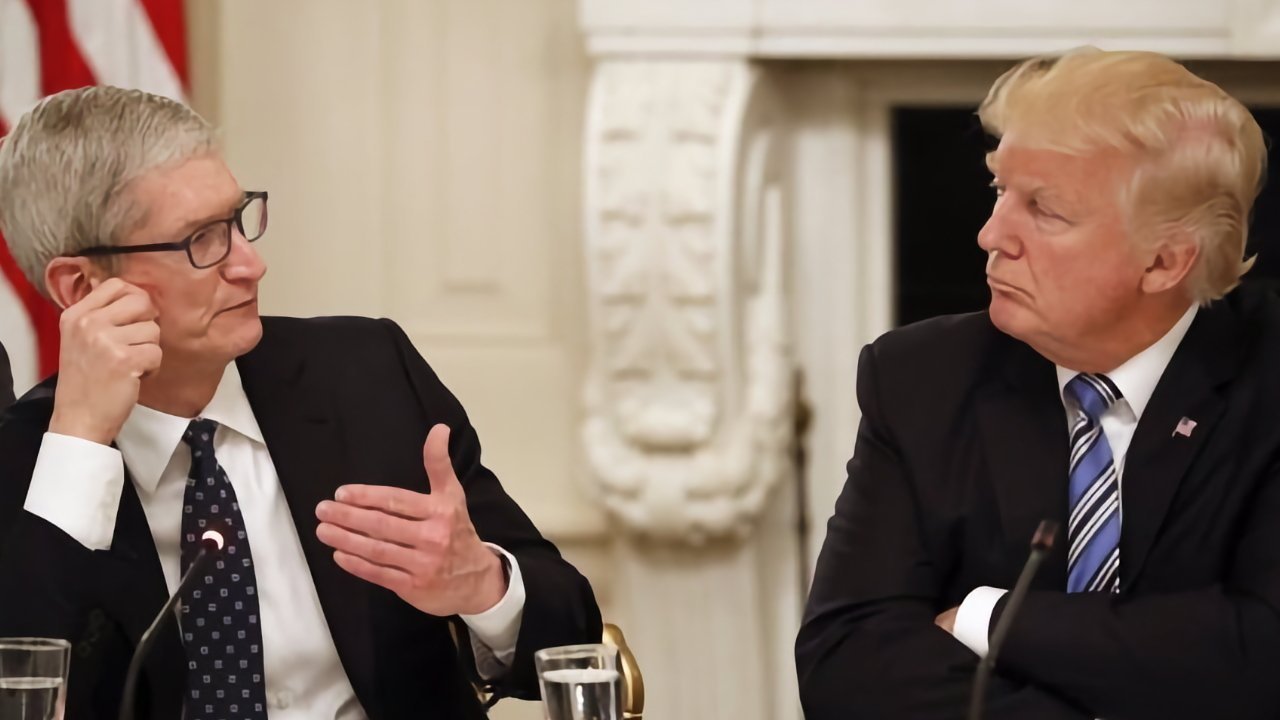Apple’s stock has regained some of its losses after the announcement of a 90-day pause on some new tariffs, while the tariff on imports from China to the U.S. has been jacked up to 125%.
Following the introduction of a 104% tariff rate against China and further retaliation from China, Apple’s stock was bracing for another day of turbulence on the market. However, after an announcement of a tariff pause, Apple’s been given a bit of a reprieve.
In an announcement on Wednesday, President Donald Trump confirmed that he had authorized a 90-day pause on new tariffs against more than 75 countries. At the same time, there is also a lowering of the reciprocal tariff to 10% for the period.
CNBC shares Trump’s Truth Social post, explaining that countries around the world have attempted to negotiate with the U.S. over the tariffs. Trump also takes a moment to take a dig at China’s reactionary tariff increases by saying the countries have not retaliated against the U.S.
At the same time, Trump cited a “lack of respect” from China, raising the tariff against imports from the country even further. Earlier in the day, the 104% tariff rate was implemented, but it’s now moved to 125% with immediate effect.
Trump adds that he hopes China will realise that “ripping off the U.S.A” and other countries is “no longer sustainable or acceptable.”
It is worth remembering that the tariffs were instigated by the Trump Administration first. China has responded to the tariffs by applying its own, but in each case, it has simply mirrored the size of increases performed by the United States.
While China is singled out as being a country that retaliated, it is unclear why Trump hasn’t mentioned the EU. Ahead of Trump’s announcement, the European Union voted to approve the first set of retaliatory tariffs against the U.S.
A boost for Apple
The reaction from the stock market was very positive, including a 7% jump on Nasdaq and a 2,000-point surge for the Dow.
Apple’s stock, which has felt pressure over the last week, has also benefited. At the time of publication, the share price is up 11.28% in response.
While the tariff against China is going up as retaliation for China increasing its own tariff on U.S. imports again, Apple stands to benefit from an easing of other tariffs.
The reduction of the reciprocal tariffs for other countries down to the 10% level reduces what Apple will have to pay for some of its product imports. After expanding its supply chain to be less China-centric, Apple can now take advantage of its production in India, Vietnam, and other countries to supply U.S. customers.





